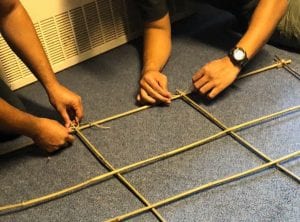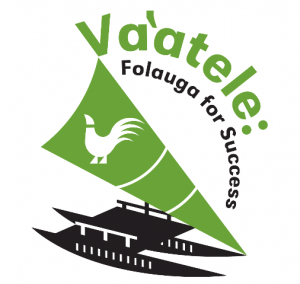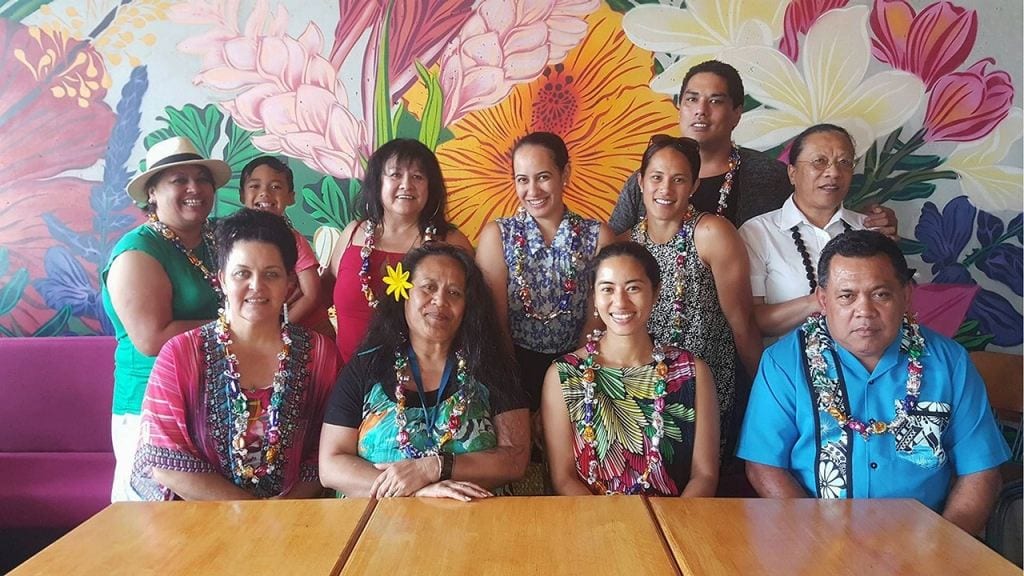Tuakaqu Mentors
Tuakaqu is the Fijian word for an elder sibling or big brother, or elder person that has the important responsibility to look after, care for or mentor the younger siblings.
In this sense all our Pacific students at the faculty have the people of Pasifika Success as their Tuakaqu, who will mentor them to be successful.
We are committed to encouraging and assisting Pacific students towards independent learning and confidence in their studies.
Na Tuakaqu ni noqu vuli ka tiko ena koronivuli torocake oqo ko Pasifika Success, kau na rawa ni vakararavitaka vua na noqu vuli ka kei na noqu kila meu na rawata vakavinaka nai naki noqu vuli.
For appointments with a tuakaqu mentor, email tuakaqu.mentoring@auckland.ac.nz
Further information regarding Pasifika student mentoring can be found here:
 The Va‘atele Programme
The Va‘atele Programme
First-year students in the Bachelor of Social Work programme were introduced to their study journey at the faculty in a special way: aboard a va͚atele (double-hulled deep sea canoe), but in a metaphorical sense.
During the first week of Semester One, the students attended the Va’atele: Folauga for Success programme, an intensive three-day orientation and induction programme organised by the Student Sucess Centre and the School of Counselling, Human Services and Social Work. Introduced for the first time this year, it aims to help students build critical relationships with staff and their colleagues to support their learning and wellbeing.
The programme took inspiration from the Associate Dean Pasifika Dr Rae Si’ilata’s (2014) Va͚atele Model. The ocean voyaging of our Pasifika ancestors, or their folauga– their navigational journeying͛– is symbolic of Pasifika people͛s successful advancement through life ((Si’ilata, 2014, p. 248). The double hulls of the va’atele (in Samoan, ndrua in Fijian, tongiaki in Tongan, and waka hourua in te reo Māori) symbolise the academic journey students undertake at university as bilingual/bicultural people. One hull may be seen to represent the language, literacy, culture, and worldview of home, while the second hull is representative of the language, literacy, culture and worldview of university. In order for students to be successful in the multiple worlds they walk in – they need to strengthen and build capacity and capability in both (Si’ilata, 2014). The va͚atele represents individuals͛linguistic and cultural resources, alongside their development as students and professionals. It also represents the partnership between academic staff and Pasifika Success student support staff in co-leading this initiative.
Around 45 first-year Bachelor of Social Work students attended the programme. One of the students, Losena Lama Vea, said:
“Attending the Va‘atele Programme definitely confirmed my decision to study the BSW. The degree will be challenging, but I’ve learnt we can lean onto each other in the cohort when we’re in need of help. I also learnt the value of ‘Tula‘i’, which means to arise and take a stand, not as an individual, but together as a family, to support one another through thick and thin” (Bachelor of Social Work student, Year One).
The programme was designed as an extended induction programme for all first-year students in the BSW and had the following aims:
- To create a sense of whakawhanaungatanga/ manaakitanga between staff and students (Greenhalgh et al, 2011) building critical relationships, partnerships and rapport;
- To create a safe and inclusive learning environment;
- To provide a holistic environment which would care for the physical, mental and spiritual wellbeing of learners (Cram & Pipi, 2001; Pasikale, 1996, 1999);
- To create a sense of belonging that would prepare students to be competent tertiary students (Tinto, 2004, Southwick et al 2017), learning how to walk between multiple worlds purposefully and confidently;
- To develop resilience and enhance confidence, institutional knowledge and capability in understanding the university context, support systems/ processes within the school/ broader faculty (Wolfgramm-Foliaki, 2015) and
- To facilitate reciprocal and meaningful connections between students.
- To validate Māori and Pasifika worldviews and valued knowledge as approved content within university programmes.
